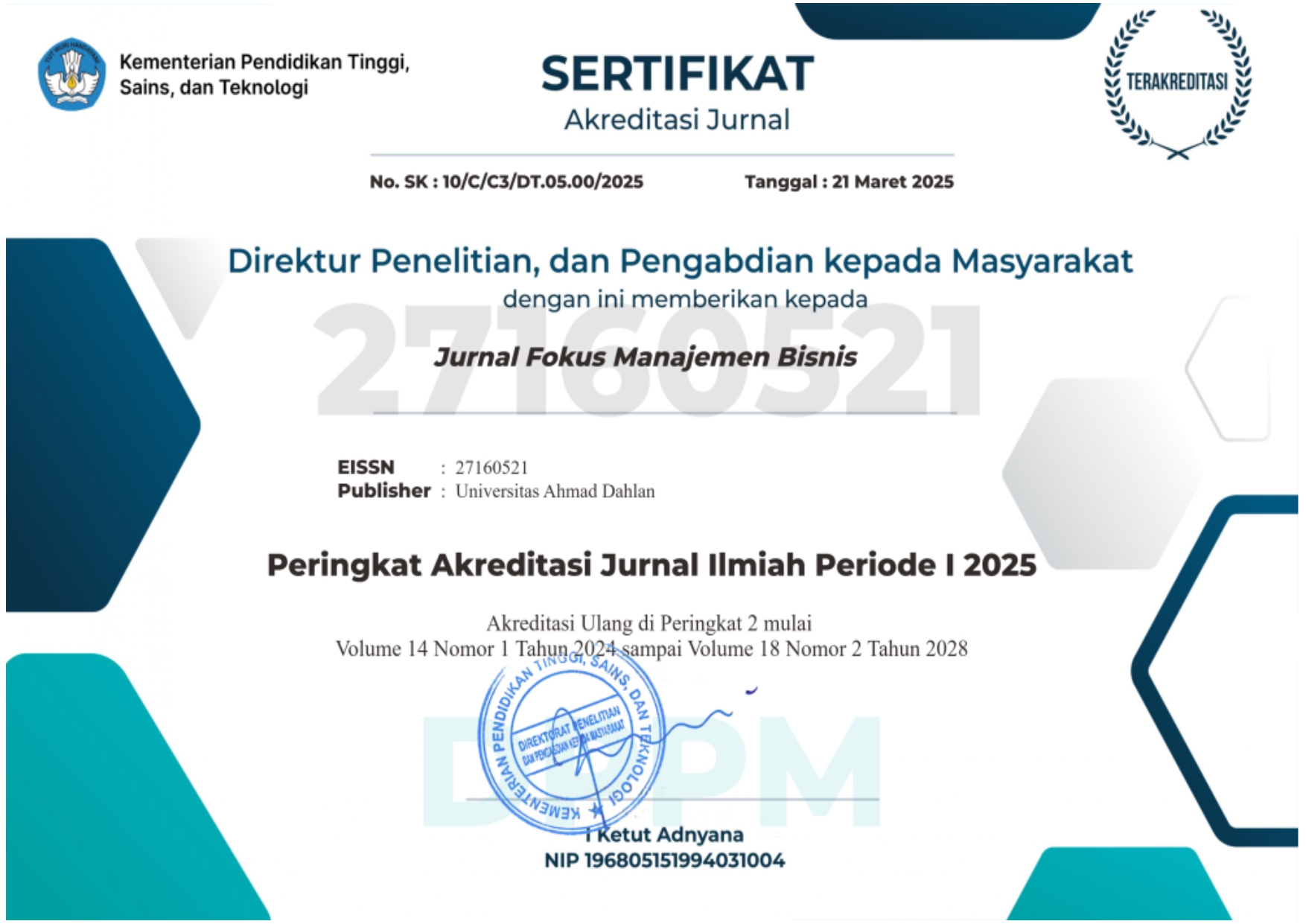ANALISIS EFISIENSI PASAR MODAL SYARI’AH BENTUK LEMAH DAN SETENGAH KUAT PADA BURSA EFEK INDONESIA
DOI:
https://doi.org/10.12928/fokus.v4i2.1356Keywords:
JII, Weak Form Efficient Market, Market Strong Half Efficient Forms, Run Test, Abnormal ReturnAbstract
The purpose of this study was to test the efficiency of the Islamic capital market is weak form by using price information in 2014 and forms a strong half by using information announcement of fuel price increases in November 2014. Sampling was done by purposive sampling method. For weak form efficiency test sample obtained 30 companies, and 24 samples to test the efficiency of a semi-strong. Capital market efficiency hypothesis testing is done with a weak form Run test. While the half strong form efficiency hypothesis was tested with One sample test. Results from this study are in the period 2014 Islamic capital market has been efficient in weak form by using price information, evidenced by the pattern of change in the return 28 of the 30 shares of the company are random sample (random), and has been efficient in the form of a strong half by using information price increase BBM, as evidenced by the occurrence of significant abnormal returns around the announcement date of the increase in fuel, ie at t0 (the day of the announcement), t + 2 (two days after the announcement) and T + 5 (five days after the announcement).Downloads
Published
2014-09-30
How to Cite
Nuryanti, S., & Sulistiyani, T. (2014). ANALISIS EFISIENSI PASAR MODAL SYARI’AH BENTUK LEMAH DAN SETENGAH KUAT PADA BURSA EFEK INDONESIA. Jurnal Fokus Manajemen Bisnis, 4(2), 111–120. https://doi.org/10.12928/fokus.v4i2.1356
Issue
Section
Articles
License
Authors who publish with this journal agree to the following terms:Â
- Authors retain copyright and grant the journal right of first publication with the work simultaneously licensed under a Creative Commons Attribution License that allows others to share the work with an acknowledgment of the work's authorship and initial publication in this journal.
- Authors are able to enter into separate, additional contractual arrangements for the non-exclusive distribution of the journal's published version of the work (e.g., post it to an institutional repository or publish it in a book), with an acknowledgment of its initial publication in this journal.
- Authors are permitted and encouraged to post their work online (e.g., in institutional repositories or on their website) prior to and during the submission process, as it can lead to productive exchanges, as well as earlier and greater citation of published work (See The Effect of Open Access).






